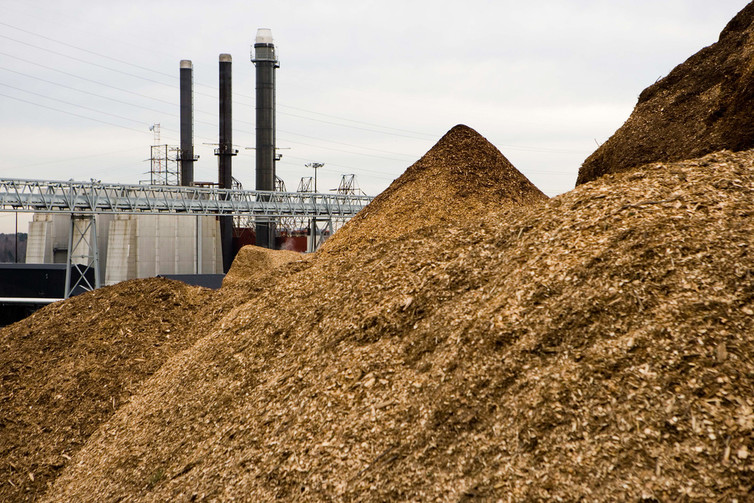
Is biomass a carbon-neutral fuel if its source trees and crops are replanted?
That’s the question at the heart of a years-long debate among members of an Environmental Protection Agency science advisory board.
Reporter Brittany Patterson of E&E News covered last month’s meeting of the science advisers, who again failed to find consensus.
In fact, the group is so far from agreement that some members suggested the report be scrapped.
Let’s listen in on Patterson’s coverage:
“I can’t imagine going through and tweaking it in a way that is going to produce a report that is magically something that this board is proud of and thinks makes a contribution to the benefit of the environment in the United States,” said William Schlesinger, president emeritus of the Cary Institute of Ecosystem Studies and a member of the science advisory board who served as a reviewer of the latest draft of the report. “There’s a lot of people that have had a lot of work in it, but that doesn’t mean they get an A grade. It can die a happy death and we’d probably be better off.”
Her summary of the issue is excellent:
“At the heart of the fight is a political and scientific debate over how EPA should measure and treat carbon emissions released when organic matter is burned considering that after a certain time, those emissions are removed from the atmosphere if trees or low-value crops are replanted.
“Many environmental groups argue biomass isn’t a renewable energy and hinders the fight against climate change because carbon dioxide emissions measured at the smokestack of facilities using biomass is equivalent to emissions from coal-powered facilities, and in the case of some biomass feedstocks, like from old-growth forests, it can take decades to sequester that carbon again. In the meantime, the carbon in the atmosphere is contributing to climate change.
“Biomass advocates say burning organic matter for energy should be recognized as carbon-neutral, and many producers use low-value materials that would otherwise go unused or stay on the forest floor posing fire risk. Both camps say the panel’s framework is useful and could provide much-needed clarity.”
At August’s meeting, the main point of contention “was the panel’s recommendations regarding how to consider the time it takes for emissions released from the burning of biomass to be removed again from the atmosphere by the replanting of those materials,” according to Patterson.
She continued:
“The chairwoman of the Biogenic Carbon Emissions Panel, Madhu Khanna, a professor in environmental economics at the University of Illinois, Urbana-Champaign, said in the latest draft report the panel recommends the agency measure biogenic emissions by choosing a time horizon that is long enough to account for nearly all of the “positive and negative changes in terrestrial carbon stocks.”
“The report notes a shorter time horizon could be used, but “this would truncate effects on carbon stocks” and could “either under- or over-estimate net carbon stock effects.”
“Some members of the science advisory board felt that language disregarded the impacts of carbon dioxide released from the burning of biomass and its immediate climate impacts and was inconsistent with how federal agencies account for carbon for fossil fuels.
” ‘We would be ignoring CO2 and acting like it doesn’t exist in the atmosphere because sometime in the future it would be taken up by a biogenic process that in many cases will be 100-plus years in the future,’ said Steven Hamburg, chief scientist of the Environmental Defense Fund, member of the science advisory board and a reviewer of the biogenic carbon emissions report.”
There’s more, and it’s worth reading at E&E News. Here’s the link. Come back after you’ve read Patterson’s full account and join the conversation on Treesource.

I’ve been caught up in the “biomass wars” here in Massachusetts- the only political entity that has banned biomass electric power. I’ve read just about everything written on the subject- and in my opinion, the very best comments can be found in a paper by the European Forest Institute: http://www.efi.int/files/attachments/publications/efi_fstp_3_2016.pdf
Joe Zorzin
“a professional forester for 44 years”